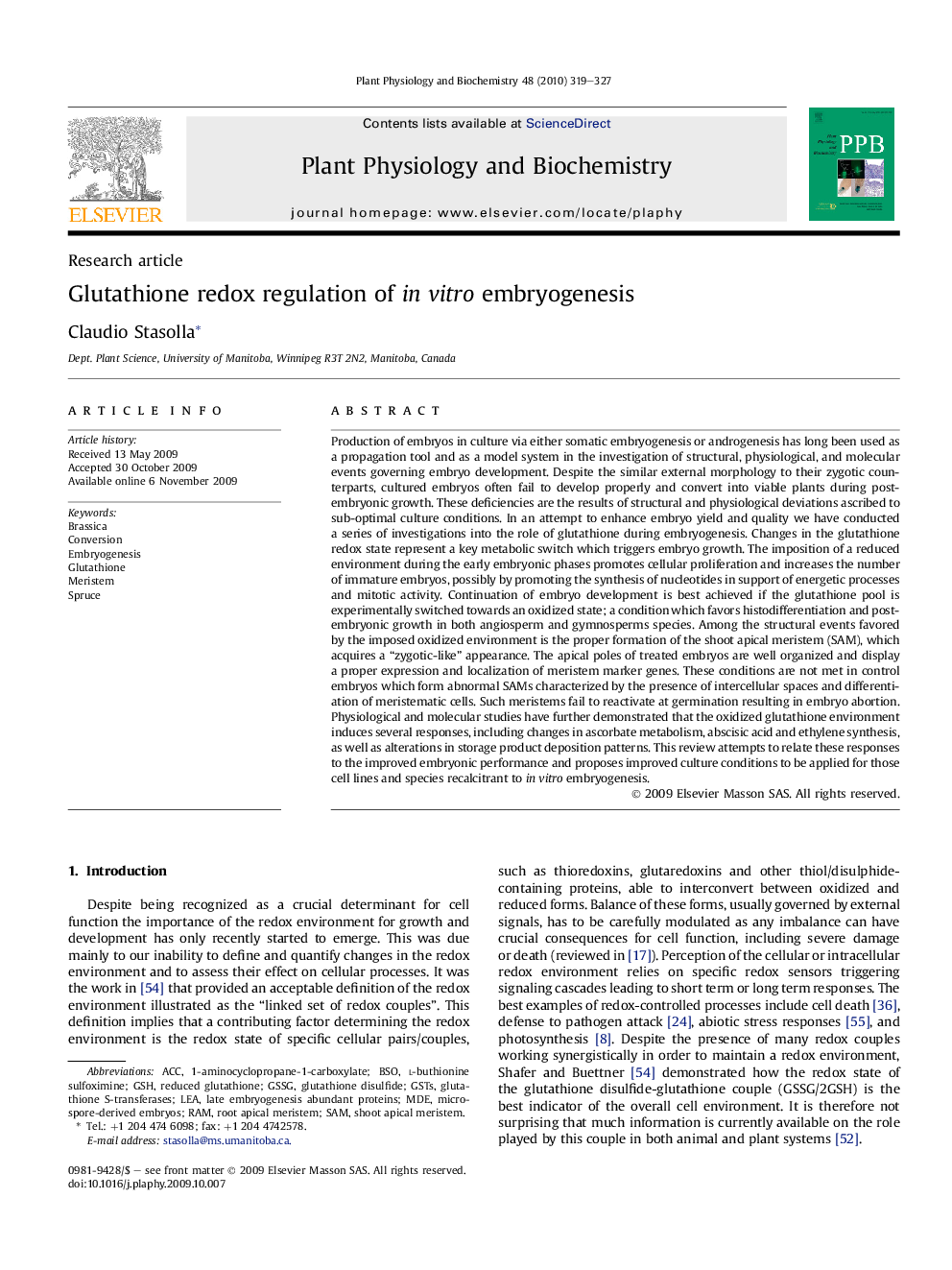| کد مقاله | کد نشریه | سال انتشار | مقاله انگلیسی | نسخه تمام متن |
|---|---|---|---|---|
| 2016499 | 1067664 | 2010 | 9 صفحه PDF | دانلود رایگان |

Production of embryos in culture via either somatic embryogenesis or androgenesis has long been used as a propagation tool and as a model system in the investigation of structural, physiological, and molecular events governing embryo development. Despite the similar external morphology to their zygotic counterparts, cultured embryos often fail to develop properly and convert into viable plants during post-embryonic growth. These deficiencies are the results of structural and physiological deviations ascribed to sub-optimal culture conditions. In an attempt to enhance embryo yield and quality we have conducted a series of investigations into the role of glutathione during embryogenesis. Changes in the glutathione redox state represent a key metabolic switch which triggers embryo growth. The imposition of a reduced environment during the early embryonic phases promotes cellular proliferation and increases the number of immature embryos, possibly by promoting the synthesis of nucleotides in support of energetic processes and mitotic activity. Continuation of embryo development is best achieved if the glutathione pool is experimentally switched towards an oxidized state; a condition which favors histodifferentiation and post-embryonic growth in both angiosperm and gymnosperms species. Among the structural events favored by the imposed oxidized environment is the proper formation of the shoot apical meristem (SAM), which acquires a “zygotic-like” appearance. The apical poles of treated embryos are well organized and display a proper expression and localization of meristem marker genes. These conditions are not met in control embryos which form abnormal SAMs characterized by the presence of intercellular spaces and differentiation of meristematic cells. Such meristems fail to reactivate at germination resulting in embryo abortion. Physiological and molecular studies have further demonstrated that the oxidized glutathione environment induces several responses, including changes in ascorbate metabolism, abscisic acid and ethylene synthesis, as well as alterations in storage product deposition patterns. This review attempts to relate these responses to the improved embryonic performance and proposes improved culture conditions to be applied for those cell lines and species recalcitrant to in vitro embryogenesis.
Journal: Plant Physiology and Biochemistry - Volume 48, Issue 5, May 2010, Pages 319–327